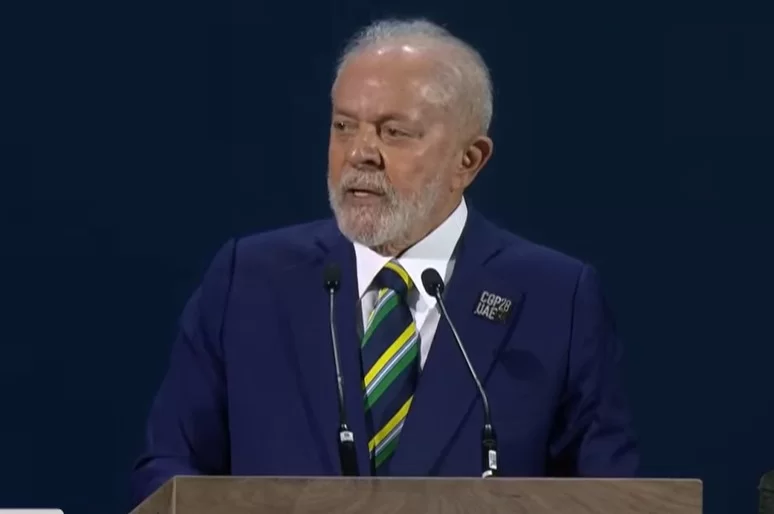Brazilian President Luiz Inacio Lula da Silva has declared Brazil will not join OPEC+ as a full member, opting for an observer role instead.
He made this clear at the U.N. COP28 climate summit in Dubai, rectifying previous statements about Brazil’s involvement in OPEC+.
Lula emphasized Brazil’s aim to influence the group rather than being fully integrated.
This decision reflects Brazil’s balancing act between environmental commitments and its oil industry interests.
Lula’s administration, known for efforts to reduce Amazon deforestation, has faced criticism for planning to exploit large offshore oil reserves.
This move is controversial as burning fossil fuels like oil is believed to significantly contribute to climate change.
President Lula highlighted the importance of Brazil’s participation in OPEC+.
He advocated for oil-rich nations to invest in renewable energy in less developed countries in Africa and Latin America.
Lula believes this approach aligns with Brazil’s environmental goals, arguing it doesn’t contradict their efforts in combating climate change.
He also mentioned that Petrobras, Brazil’s state-owned oil company, will continue exploring for oil. Lula recognized the current global dependence on fossil fuels.

However, he assured us that Petrobras would expand its focus beyond oil, exploring diverse energy options to support Brazil’s growth.
Lula ended his COP28 visit with a trip to Berlin for the first Brazil-German government talks in eight years, maintaining Brazil’s involvement in global discussions.
Background
Brazil’s observer status in OPEC+ marks a strategic stance in international oil politics.
By not fully joining OPEC+, Brazil retains flexibility in its oil production decisions while still having a voice in global oil discussions.
This position is unique compared to other major oil-producing countries that are full OPEC members.
Historically, full membership often entails adherence to production quotas, which Brazil seeks to avoid.
Lula’s approach mirrors Brazil’s broader strategy of maintaining autonomy in its resource management while actively participating in global forums.
Comparatively, nations like Russia and Saudi Arabia, key OPEC+ members, often use their full membership for geopolitical leverage.
Brazil’s decision can be seen as a balancing act, maintaining its significant role as an oil producer while committing to environmental sustainability.
This move might influence other emerging oil producers in their approach to global energy cooperation.

